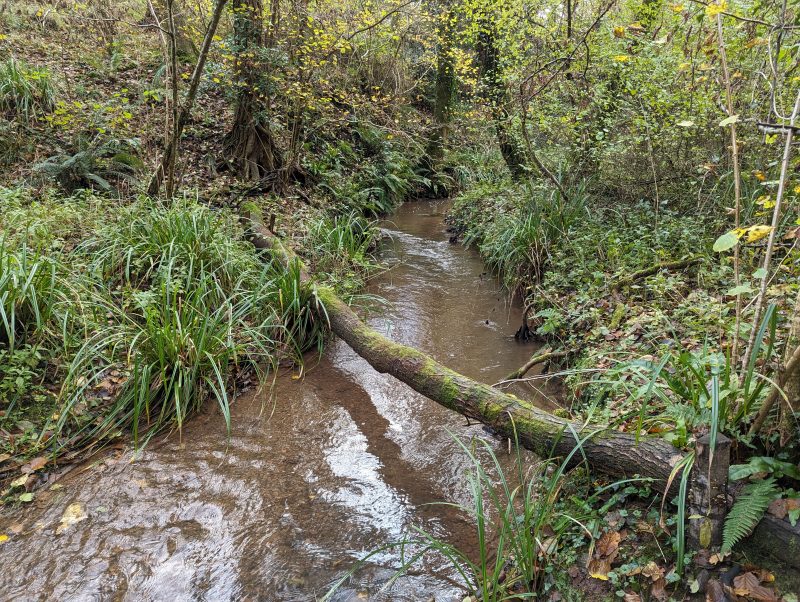News / rivers
Rivers research reveals ‘potentially huge’ implications
A new study has revealed for the first time that ancient carbon, stored in the landscape for thousands of years or more, is being released from the surface of rivers back into the atmosphere.
The University of Bristol research, which appeared in the international scientific journal Nature, suggests re-evaluation of the workings of the global carbon cycle, specifically organic carbon capture, may be required.
“The results took us by surprise because it turns out that old carbon stores are leaking out much more into the atmosphere then previous estimates suggested,” said Dr Josh Dean, lead author of the study and the University’s associate professor in biogeochemistry, who suggested to Bristol24/7 the results could imply increased human disturbance of rivers.
is needed now More than ever
“The implications are potentially huge for our understanding of global carbon emissions. Plants and trees take up CO2 from the atmosphere and can then lock this carbon away in soils for thousands of years.
“Our findings show some of this old carbon, as well as ancient carbon from rocks, is leaking sideways into rivers and making its way back to the atmosphere.
“We don’t yet know how humans are affecting this flow of ancient carbon, but we do know plants and trees must be taking up more carbon from the atmosphere today to account for this unrecognised release of old carbon.”

This aerial image captures rivers in northeast Siberia which are known to emit old carbon. The researchers studied 700 rivers across 26 different countries – photo: University of Bristol.
In terms of UK river health, Dean said the ancient carbon the team were finding in rivers could be a result of human disturbance, and that the study could have implications for future river conservation which is vital for environmental health.
“We know that wastewater treatment plants and other industries such as intensive agriculture can release “old” carbon into rivers,” he said.
“Other forms of human disturbance, such as drainage of vulnerable peatlands, will also release old carbon. So measuring the age of river carbon is a good way to assess the health of UK rivers.
“Our study was targeted at the global scale, meaning fine scale patterns such as these disturbances were hard to identify.
“But we did see that since measurements began in the 1990s river carbon emissions appear to have been getting older, and this could be an indication of increasing human disturbance on rivers amongst other things – this finding is not definitive, however.
“Therefore, restoring rivers and preventing the release of pollution into them would have a net climate benefit, as well as making these vital features of our landscape safe to access again.
“There is no question that we should be treating our rivers better.”

South West Water is the subject of four current criminal investigations, as part of a government ‘crackdown’ on water companies announced on May 20, and has plans for an infrastructure upgrade which they say will reduce river pollution incidents by 62 per cent. The Independent Water Commission has announced that the system needs greater regulation in order to protect the environment – photo: Bristol Avon Rivers Trust
Scientists had previously thought the carbon dioxide and methane released from river surfaces was the result of a ‘quick turnover’ of recent plant growth broken down and carried into the water system.
The study’s findings, based on dating the carbon found in 700 rivers in 26 countries, that around 60 per cent of emissions are actually attributed to long-term carbon stores accumulated in deep soil layers and rock over hundreds, thousands or even millions of years ago was a surprise.
They suggest a greater role for plants and shallow soil in capturing and storing carbon than previously thought: they are likely removing around one gigatonne more CO₂ each year from the atmosphere to counteract the leaking of old carbon stores.
“Rivers globally release about two gigatonnes of carbon each year, compared to human activity that results in between 10-15 gigatonnes of carbon emissions,” said co-author Dr Gemma Coxon, associate professor in Hydrology and UKRI Future Leaders Fellow.
“These river emissions are significant at a global scale, and we’re showing that over half of these emissions may be coming from carbon stores we considered relatively stable.
“This means we need to re-evaluate these crucial parts of the global carbon cycle.”
The researchers plan next to explore how the age of river carbon emissions varies across rivers the study was not able to capture, as well as investigating how the age of these emissions may have changed through time.
Main image: Ursula Billington
Read next:
 Our newsletters emailed directly to you
Our newsletters emailed directly to you




















